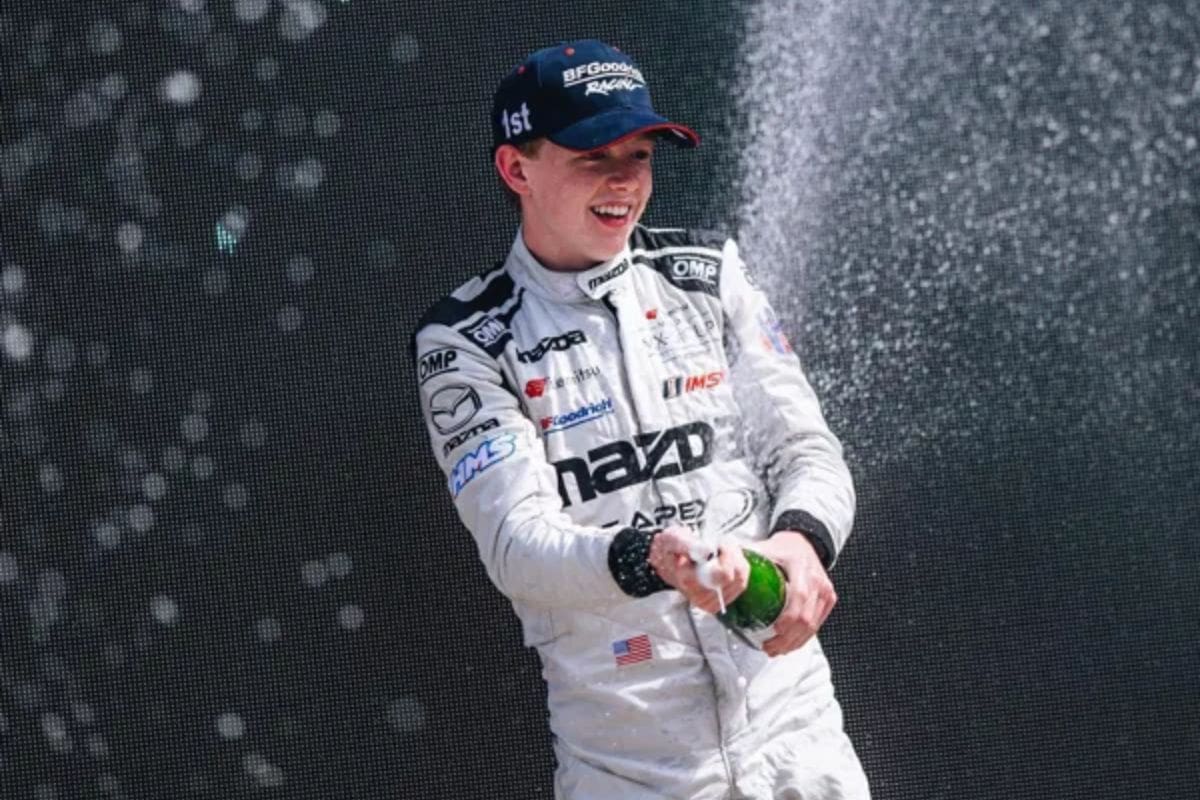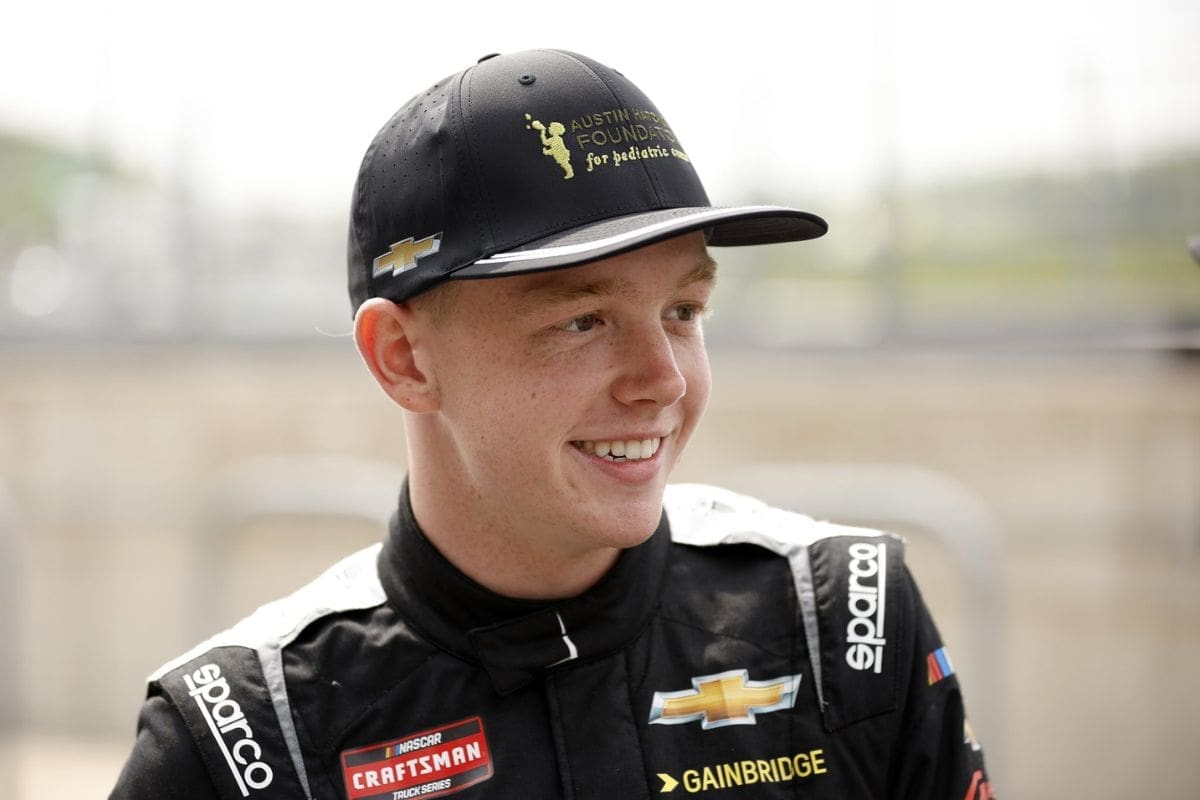Connor Zilisch Gets Harsh Reality Check: Connor Zilisch‘s rise in the Xfinity Series shows the dual nature of success in NASCAR, where achievements can quickly be overshadowed by the relentless demands of the sport’s upper echelons. While his early victories highlight undeniable talent, the shift to a more competitive environment reveals the harsh realities that even the most promising young drivers must confront. This contrast raises critical questions about the demands of performance and the crucial mental fortitude required to thrive. As Zilisch continues to navigate this challenging landscape, the implications for his future and the broader context of young talent in NASCAR remain compelling.
Key Highlights
- Connor Zilisch’s rapid rise in racing has led to high expectations, exposing him to the harsh realities of NASCAR’s competitive environment.
- The transition from lower divisions to NASCAR reveals intense competition, requiring Zilisch to quickly adapt to new racing formats and team dynamics.
- Mental resilience is crucial; young drivers like Zilisch face pressure that can lead to anxiety and self-doubt in a environment.
- Zilisch’s success in previous series does not guarantee immediate success in NASCAR, highlighting the need for continuous improvement and adaptation.
- Building relationships within the team and managing performance pressures will be vital for Zilisch as he progresses in his racing career.
Pressure on Young Racing Talent
In the world of NASCAR, the young racing talent like Connor Zilisch is multifaceted. As an 18-year-old who recently secured his debut victory in the Xfinity Series at Watkins Glen International, Zilisch finds himself thrust into a spotlight that can be both exhilarating and suffocating. The immense burden to perform at such a young age can cultivate a dual-edged sword: while some may thrive, others may falter under the weight of expectations.
NASCAR is not merely a test of speed and skill; it is an area where mental fortitude is as essential as physical skill. The relentless scrutiny from fans, media, and competitors creates a environment where comparisons are inevitable. In this landscape, young talents like Zilisch must navigate their own aspirations while grappling with the incessant urge to measure themselves against their peers. This can lead to heightened anxiety and self-doubt, detracting from their natural instincts behind the wheel.
Moreover, the competitive nature of the sport can exacerbate feelings of inadequacy. Each victory by a fellow driver can serve as a reminder of the uphill battle Zilisch faces, intensifying the burden to replicate or exceed those achievements.
Balancing ambition with the realities of competition is an intricate dance that requires not only skill but also a resilient mindset. Ultimately, the road ahead for Zilisch and his contemporaries will demand not just talent, but a profound understanding of how to harness pressure as a catalyst for growth rather than a barrier to achievement.
Brett Griffin Warns Against Comparisons
The stresses of competition in NASCAR extend beyond the racetrack, as mental health and personal well-being become increasingly intertwined with performance. Brett Griffin’s insights, particularly regarding the emotional toll of comparisons, resonate deeply within the racing community. His warnings, articulated through the lens of Bubba Wallace’s experience following Ryan Blaney’s 2023 championship victory, emphasize the potential psychological pitfalls that aspiring drivers face.
“I think those comparisons can either motivate you or depress you, and like Bubba Wallace admitted over the winter, when Ryan Blaney won a championship, it sent him into a downward spiral a little bit.
“Because he was sitting there and comparing himself to a guy he grew up racing against that was a good friend of his. Because that guy found a championship before he did, it beat him up. If I’m 18 years old, I would sure as hell hate to compare myself to a Connor Zilisch for the next 20 years.”-(GRIFFIN)
When competitors are also friends, the emotional stakes can rise dramatically. Wallace’s struggle post-Blaney’s success demonstrates how such comparisons can lead to detrimental mental states. Griffin highlights the importance of individual paths, especially in the context of emerging talents like Connor Zilisch. Acknowledging one’s unique journey is vital in an environment rife with competition.
The delicate balance between learning from peers and succumbing to envy is a tightrope that young racers must navigate. Griffin’s cautionary words serve as a reminder to accept one’s path rather than fall into the trap of relentless comparison. Young drivers should focus on their skill development, celebrating others achievements while cultivating a personal mindset geared toward growth, resilience, and self-acceptance.
Connor Zilisch’s Remarkable Achievements
Connor Zilisch’s recent accomplishments in the world of NASCAR have captured the attention of both fans and industry insiders, showcasing not only his undeniable talent but also his remarkable maturity as a driver. The 18-year-old phenom has made a striking impression, particularly securing two victories at Watkins Glen International over a single weekend. This achievement highlights his extraordinary capability, as he garnered his fifth ARCA Menards Series win in just six appearances at the prestigious 2.45-mile road course.
Beyond his ARCA success, Zilisch made headlines by qualifying on pole and subsequently winning his debut Xfinity Series race with an authoritative performance. This dual accomplishment reflects a driver who not only possesses raw speed but also the tactical insight to navigate high-pressure situations—traits that are often found in seasoned professionals rather than in burgeoning talents.
As he prepares for a full-time role with Dale Earnhardt Jr.’s JR Motorsports in the 2025 season, expectations escalate. Zilisch’s achievements are exceptional and draw attention to the factors that contribute to success in NASCAR: a combination of innate talent, relentless work ethic, and perhaps a touch of fortune.
Connor Zilisch’s Potential NASCAR Stardom
Eighteen years old and already a rising star, Connor Zilisch’s path in NASCAR suggests he possesses the vital attributes to become the sport’s next superstar. His rapid ascent through diverse racing disciplines is marked by notable achievements that emphasize both talent and resolve.
Remarkably, Zilisch made history as the initial American driver to win the CIK-FIA Karting Academy Trophy at just 14, a feat previously accomplished by elite drivers such as Charles Leclerc. This early success set a precedent, demonstrating his capability to compete at high levels.
Furthermore, Zilisch’s record as the youngest driver to secure a Trans-Am victory and his impressive five podium finishes last year serve as indicators of his versatility and competitive edge. His recent victories in prestigious endurance races like the 24 Hours of Daytona and the 12 Hours of Sebring further cement his status as a formidable contender in the racing arena.
What distinguishes Zilisch is not merely his accomplishments but also his maturity and tactical mindset, traits acknowledged by NASCAR luminary Kyle Larson, who predicts a bright future for him in the Cup Series.
“He’s really good. He’s got his head on straight and he seems very mature. I think, for sure, he’ll be a Cup Series guy someday.”-(LARSON)
Future Prospects for Connor Zilisch
With a promising path already established, the future prospects for Zilisch in NASCAR appear increasingly optimistic. As he prepares to navigate the challenges of the Xfinity Series with JR Motorsports, it is important for him to remain grounded and focused on his development as a driver.
His undeniable talent, coupled with a tactical approach to racing, suggests that his ascent into the Cup Series may occur sooner than typically expected for newcomers.
To capitalize on his potential and guarantee a successful career, Zilisch should consider the following strategies:
- Gradual Adaptation: Prioritize learning the intricacies of stock car racing in the Xfinity Series before making the leap to the Cup Series.
- Continuous Improvement: Seize every opportunity for skill development, whether through on-track performance or off-track analysis.
- Building Relationships: Cultivate strong connections with team members, sponsors, and competitors, as networking is critical in NASCAR.
- Mental Resilience: Develop a robust mental framework to handle the demands and expectations that accompany competitive racing at higher levels.
While speculation about his superstardom swirls, it is important that Zilisch remains focused on the task at hand.
His path will be marked by challenges and learning experiences, but with a clear vision and dedication to growth, he is well-positioned to make a meaningful impact in NASCAR.
News in Brief: Connor Zilisch Gets Harsh Reality Check
Connor Zilisch’s expedition in NASCAR exemplifies the dual nature of success and adversity within the sport. While remarkable achievements shows undeniable talent, the competitive landscape presents considerable challenges that demand both skill and mental fortitude. Steering through this complex environment necessitates resilience and adaptability, ultimately shaping Zilisch’s potential path in NASCAR. As the young driver continues to evolve, the lessons learned from both victory and hardship will play a critical role in future aspirations and accomplishments.
ALSO READ: Connor Zilisch’s Post-Race Interview Interrupted by Dale Jr.’s Unexpected Call



